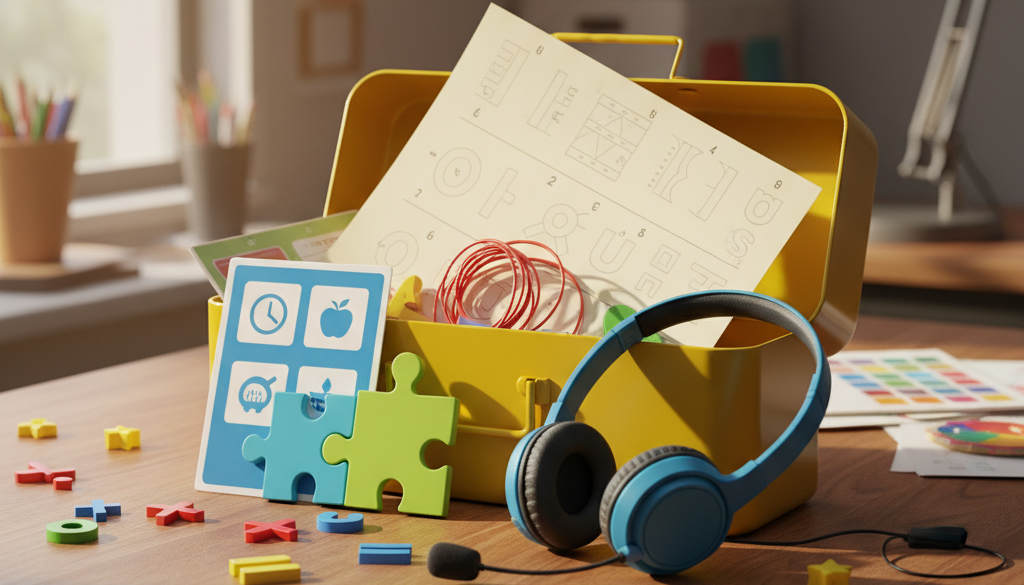Parenting a child with learning difficulties of any sort can feel overwhelming, especially when you’re trying to find the right support without spending a fortune. Thankfully, there are many free resources available online that are of high quality. Whether you’re looking for help with dyslexia, ADHD, autism, or dyscalculia, this list offers reliable, practical support you can trust.
This curated hub is designed to save you time and stress. Bookmark it, share it, and return to it whenever you need support on your parenting journey.
1. Dyslexia tips – Nessy
Nessy’s free resources offers a range of games, resources, articles and downloadable guides for supporting children with dyslexia. Known for their child-friendly learning software, Nessy explains key signs of dyslexia and what parents can do at home. There’s also a helpful screening tool you can try for free.
2. ADHD tips – ADDitude Magazine
ADDitude is a brilliant go-to site for parents of children with ADHD. Their free articles and downloadable toolkits cover everything from creating calming routines to managing screen time and school communication. There’s also a podcast and email newsletter packed with advice from professionals and parents AND a symptom checker tool to help you compare symptoms to other common conditions.
If your child with ADHD is about to undertake exams, our article How to calm exam nerves for children with ADHD will give you and your child some additional support.
3. Autism support – National Autistic Society
The National Autistic Society is one of the UK’s leading charities for autism, offering a wealth of free advice for parents including understanding autism. Their Advice and Guidance section includes practical tips for behaviour, sensory needs, and school communication. There are also free downloadable guides, webinars, and signposting to local services across the UK.
4. Dyscalculia support – The Dyscalculia Network
The Dyscalculia Network offers clear, accessible information about maths learning difficulties. Their free blog posts and resources are created by specialists and include real examples of what to look for, as well as ways to help at home. It’s especially useful for children who find maths frustrating or anxiety-inducing.
Our article What is dyscalculia? Everything you need to know to support your child will also provide you with information that can help.
5. SEND general support – Contact
Contact is a UK charity for families with disabled children. They offer a free helpline, downloadable guides, and a searchable directory of local services. Whether you’re new to the SEND world or in need of a specific answer, Contact is a trusted place to start. They also have a comprehensive A-Z list of medical conditions for parents who have just received a diagnosis.
6. EHCP and school rights – IPSEA
Navigating the legal side of SEND education can be confusing, especially for parents. IPSEA (Independent Provider of Special Education Advice) offers free, legally-based information about EHCPs, school exclusions, and how to advocate for your child. Their template letters are especially helpful for communicating with schools and local authorities. Their home page has a language feature to change from English into another language.
7. Mental health and resilience – YoungMinds
YoungMinds provides mental health support for children and young people, but their parent section is equally strong. Find free guides on anxiety, meltdowns, low self-esteem, transitions, coping tools for both children and adults. They also offer a Parent Helpline for one-to-one support. Look out for the real parent stories and lived experiences.
8. Visual learning tools – Twinkl SEND Resources
While Twinkl is mostly a paid platform, their free SEND resources are excellent for visual learners. You’ll find social stories, visual timetables, emotion charts, and home learning packs. Great for children who need structure or who struggle with transitions. If you choose to subscribe, there are more resource options, too.
9. Speech and language tips – Speech and Language UK
Formerly I CAN, Speech and Language UK offers free activities and checklists for children with speech, language and communication needs. Their Progress Checker is a quick and easy tool to see if your child may need further support. There are printable speech activities by age, video guides, tips for building vocabulary and understanding and support for selective mutism and stammering. Their advice is ideal for children who are “late talkers” or struggling to express themselves.
10. Online community and Q&A – Facebook and Reddit groups
For emotional support, real-life tips, and quick answers to everyday questions, online communities can be a lifeline. Try:
- Facebook groups like this one: Support for children with special educational needs and disabilities
- Reddit’s r/SpecialEducation
Always use trusted groups and remember not all advice is expert-led. However, the shared experience of other parents can be incredibly validating.
Final thoughts: Your parenting toolbox just got bigger
Every child is different, and so is every parenting journey. These free resources are here to save you time, reduce your stress, and help you feel more confident in supporting your child’s unique needs. You don’t have to do this alone.
Bookmark this page and check back – we’ll keep updating the links over time (last checked 28 Sept 2025) to reflect the best, most trusted support available.











